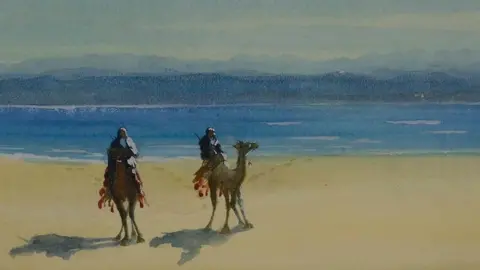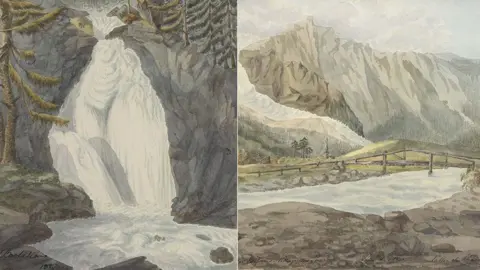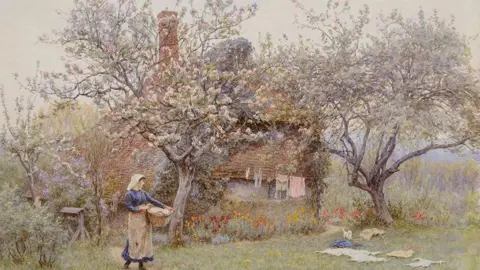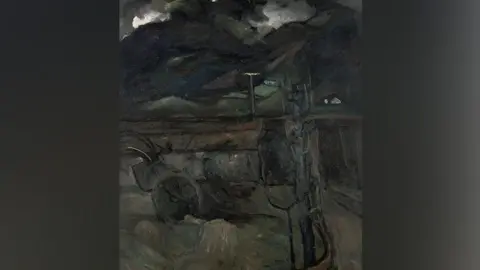Exhibition celebrates female artistic trailblazers
 National Museums Liverpool
National Museums LiverpoolA new exhibition celebrates women who were determined to paint in an era when art was dominated by men.
Another View: Landscapes by Women Artists at the Lady Lever Art Gallery in Port Sunlight, Wirral, highlights their place in the history of British landscape art.
It tells the story of women artists' growing ambition and how they got more of a foothold in the art world.
About 40 works from the early 1800s through to the 1980s feature.
 National Museums Liverpool
National Museums LiverpoolThe exhibition interrogates the term "lady amateur", which was often used in contrast to the “professional” artist title usually reserved for males.
Melissa Gustin, curator of British Art, said the exhibition champions work by female artists determined to fulfil their creativity but who were often mocked by the establishment.
She said: "They've come from being laughed at at every tea table, as Thomas Gainsborough said, to being some of the most recognised women and artists in the world."
She said: "This exhibition shows how women landscape painters used their art to express their individual gazes, representing multiple viewpoints along the way.
“They explored and interrogated the landscape around them, developing important networks and experimenting with new mediums and techniques in the process."
 National Museums Liverpool
National Museums LiverpoolElizabeth Campbell, whose watercolours recording her tour through the Alps were painted between 1818 and 1827, is among the relatively unknown artists featured in the exhibition.
Ms Gustin said the artist, from Yorkshire, was radical for her time.
"She married a Scottish soldier, and after he died in the Napoleonic Wars... she took her young daughter, Thomasina, off to the Continent and spent the next 20 or 30 years essentially having adventures," she said.
Ms Gustin said she did everything from "mountain climbing to speaking new languages and meeting new people and painting everything along her way".
"They include a document of her trip over Mont Blanc," she said.
"They were the first women to do this and they did it in corsets and hoop skirts, painting the whole way."
 National Museums Liverpool
National Museums LiverpoolWork from decorated artist Dame Ethel Walker (1861-1951) is also included in the display.
She exhibited at the Venice Biennale several times, was elected to the Royal Academy, and was given a damehood for her services to the arts in 1943.
She wanted to be known as an artist, not a female artist, Ms Gustin said.
"She felt the discussion around women artists from male artists was counter-productive, and that what really mattered was the quality of someone's painting or sculpture," she said.
She said she felt "that they should not be focused on the person's gender but on how well they actually painted and if they had originality and talent".
 National Museums Liverpool
National Museums LiverpoolWork from Sheila Fell (1931-1979) is also on show.
The Cumbria artist preferred the local views to anywhere else even though she travelled in Europe, Ms Gustin said.
"She loved the place she came from in Cumbria and painted that rather than anything else.
"She visited Greece, she visited France and she found them uninspiring compared to Aspatria and the land that she'd grown up in," she added.
The exhibition runs until 18 August.
Listen to the best of BBC Radio Merseyside on Sounds and follow BBC Merseyside on Facebook, X, and Instagram? You can also send story ideas to [email protected]
